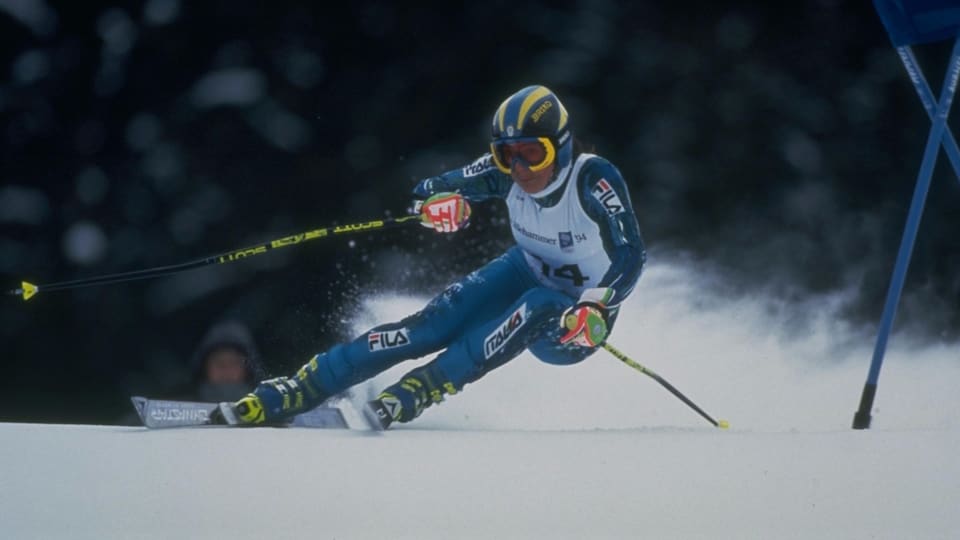
She had taken gold in the super-G, but her luck had then changed profoundly. Just the day after topping the podium, she crashed heavily in the giant slalom, suffering the latest in a series of serious knee injuries. She left Albertville worrying whether she would ever win again.
It took her a long time to recover – but she did. Moving away from the faster races, such as the super-G, she decided to concentrate more on slalom and giant slalom, where her fragile knees would take less of a battering.
She also decided to focus her efforts on the biggest events – and especially the Olympic Winter Games. Having returned from her injury, she won four World Cup races in the year before heading for Lillehammer, where she entered all three slalom events. As it turned out, she didn’t challenge for a medal in either the super-G or the slalom, but instead it was the giant slalom where she made her mark. After the first run, Compagnoni led the way, 0.63 secs ahead of Germany’s Hilde Gerg and nearly a second clear of two other favourites – Switzerland’s Vreni Schneider and Germany’s Martina Ertl-Renz.
Many expected her to ski conservatively on the second run, to try to protect that lead. Instead Compagnoni produced a bold performance, finishing fastest again to take the gold medal by a margin of more than a second from Ertl-Renz in silver and Schneider in bronze.
Compagnoni retained her giant slalom title in 1998, making her the first Alpine athlete to win a gold medal at three successive Games.
